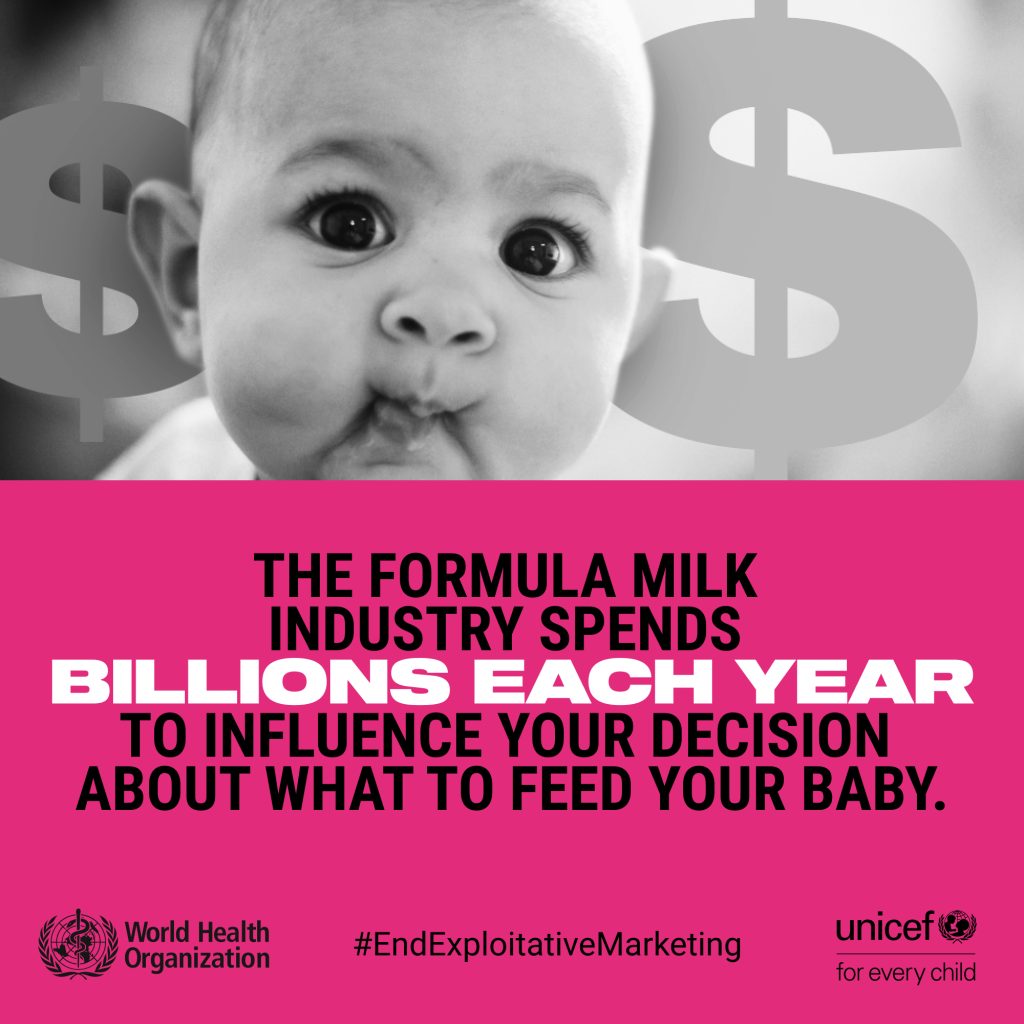
The report exposes the extent of marketing tactics that influence infant and young child feeding decisions. It finds that “exposure to formula milk marketing reaches 84 per cent of all women surveyed in the United Kingdom; 92 per cent of women surveyed in Viet Nam and 97 per cent of women surveyed in China, increasing their likelihood of choosing formula feeding.
The report clearly recommends that governments everywhere adopt, monitor and enforce laws to prevent the promotion of formula milk, in line with the International Code and subsequent WHA Resolutions, prohibit promotional claims, adopt parental leave and other policies to support breastfeeding. It also recommends that health workers are banned from accepting sponsorship from companies that market foods for infants and young children for scholarships, awards, grants, meetings, or events.
The Code does not need reform. At the launch and in media reports some have suggested that the Code needs to be reformed. We believe this to be a really bad idea that would be used by companies and industry-friendly governments to argue for more delay. But there is no need. The Code covers all forms of promotion – including e-commerce and cross promotion. Provided WHO provides its Member States with opportunities to adopt strengthening Resolutions and provided governments put these into law, the Code can keep pace with marketing. The Code is a global document and doesn’t address how governments legislate, prosecute and hold corporations to account. This is best done at national or regional level. IBFAN has been monitoring company practices and alongside WHO and UNICEF has been helping governments bring in strong effective legislation on the Code for the last 40 years. After many failed attempts to persuade baby food companies to voluntarily stop predatory marketing, it’s clear that there is no point chasing these companies for watered down here-today, gone-tomorrow promises or considering them to be ‘partners’ in health. This new report should leave no-one in any doubt: strong legislation is the best and only way forward. Policy setting processes, including global trading standards (2)(3), must be safeguarded.

